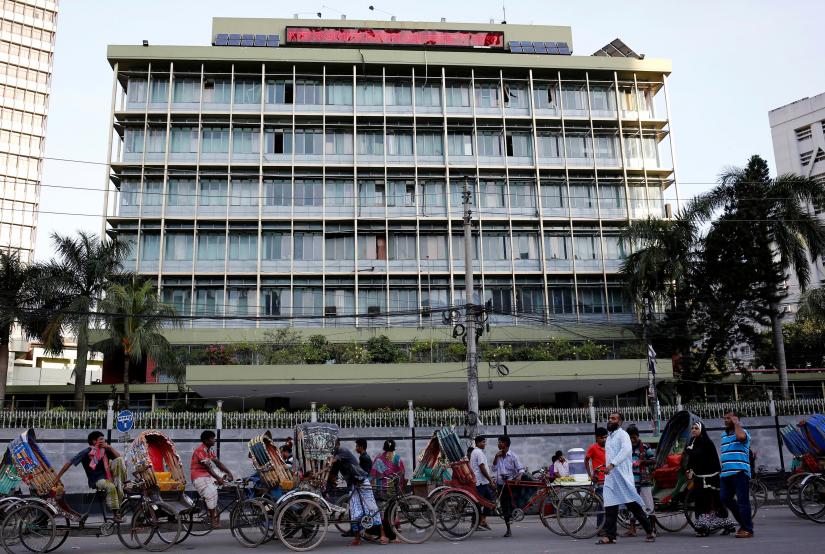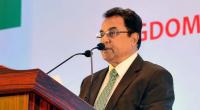 As part of the ongoing probe to reform the country's ailing banking sector, Bangladesh Bank will conduct special audits of eight more banks, after Janata Bank, AB Bank, and Al-Arafah Islami Bank.
As part of the ongoing probe to reform the country's ailing banking sector, Bangladesh Bank will conduct special audits of eight more banks, after Janata Bank, AB Bank, and Al-Arafah Islami Bank.
The eight banks are: One Bank, Eastern Bank, Mercantile Bank, NCC Bank, Shahjalal Islami Bank, BRAC Bank, Southeast Bank and Mutual Trust Bank.
Early this month, Bangladesh Bank conducted an audit to unearth loan irregularities at Janata, AB, and Al-Arafah.
Separate committees have already been formed last week with officials of the central bank's Inspection Division to conduct special inspections at all eight banks. The committees have been instructed to submit their reports by this month, said a senior Bangladesh Bank official.
The banks concerned will be audited on a set model that includes identifying each bank's top five lenders, top five bank loan renewals, top five interest waivers, and top five loan defaulters.
Afterwards, the inquiry committees will make specific recommendations to reduce default loans and take action against willful defaulters, the official added.
The process of loan applications, branch evaluation, head office evaluation, board approval or approval of the management authority, project inspection report, evaluation of collateral security, legal opinion, documentation, credit distribution, and other issues will also be scrutinized during the probe, a committee member said.
The combined bad loans of the eight banks concerned stood at Tk 6,873.62 crore as of December 31, 2018.
Former governor of the central bank, Salehuddin Ahmed, said a strong commission is needed to resolve issues plaguing the banking sector.
At the beginning of this month, Bangladesh Bank formed several committees, including a high profile one led by one of its deputy governors, in a bid to reform the country's ailing banking sector.
Furthermore, the committees will also recommend amending the Bank Companies Act, the Artha Rin Adalat (Money Loan Court), the Financial Institutions Act, and other bankruptcy-related legislation.
A policy for compulsory merger of weaker banks and financial institutions will also be drafted by a committee.
Calls for reform
At the beginning of this year, the government asked Bangladesh Bank to undertake banking sector reforms as part of the ruling Awami League's 13-point election manifesto pledge.
Prior to elections in December 30, 2018, the Awami League pledged to undertake an effective and sustainable strategy to lower NPLs and implement the Bankruptcy Act.
According to the manifesto, the central bank would keep interest rates under control without hampering the market system, by adopting specific strategies and taking initiatives to inspect the expertise and skill of banks in approving and disbursing loans.
The manifesto pledged to make the ongoing supervision and regulation of commercial banks and financial institutions more effective and powerful, effectively addressing banking fraud, including loan defaulters.
At the end of December 2018, total NPLs in the banking sector stood at Tk93,911.40 crore, or 10.30% of all disbursed loans.
 Business
Business
41404 hour(s) 49 minute(s) ago ;
Evening 11:43 ; Monday ; Jul 07, 2025
BB to conduct special audits of eight more banks
Send
Mehedi Hassan
Published : 05:00, Mar 25, 2019 | Updated : 05:00, Mar 25, 2019
Published : 05:00, Mar 25, 2019 | Updated : 05:00, Mar 25, 2019
0 ...0 ...
/hb/
Topics: Top Stories
- KOICA donates medical supplies to BSMMU
- 5 more flights to take back British nationals to London
- Covid19: Rajarbagh, Mohammadpur worst affected
- Momen joins UN solidarity song over COVID-19 combat
- Covid-19: OIC to hold special meeting
- WFP begins food distribution in Cox’s Bazar
- WFP begins food distribution in Cox’s Bazar
- 290 return home to Australia
- Third charter flight for US citizens to return home
- Dhaka proposes to postpone D8 Summit
Unauthorized use of news, image, information, etc published by Bangla Tribune is punishable by copyright law. Appropriate legal steps will be taken by the management against any person or body that infringes those laws.
Bangla Tribune is one of the most revered online newspapers in Bangladesh, due to its reputation of neutral coverage and incisive analysis.
F R Tower, 8/C Panthapath, Shukrabad, Dhaka-1207 | Phone: 58151324; 58151326, Fax: 58151329 | Mob: 01730794527, 01730794528






